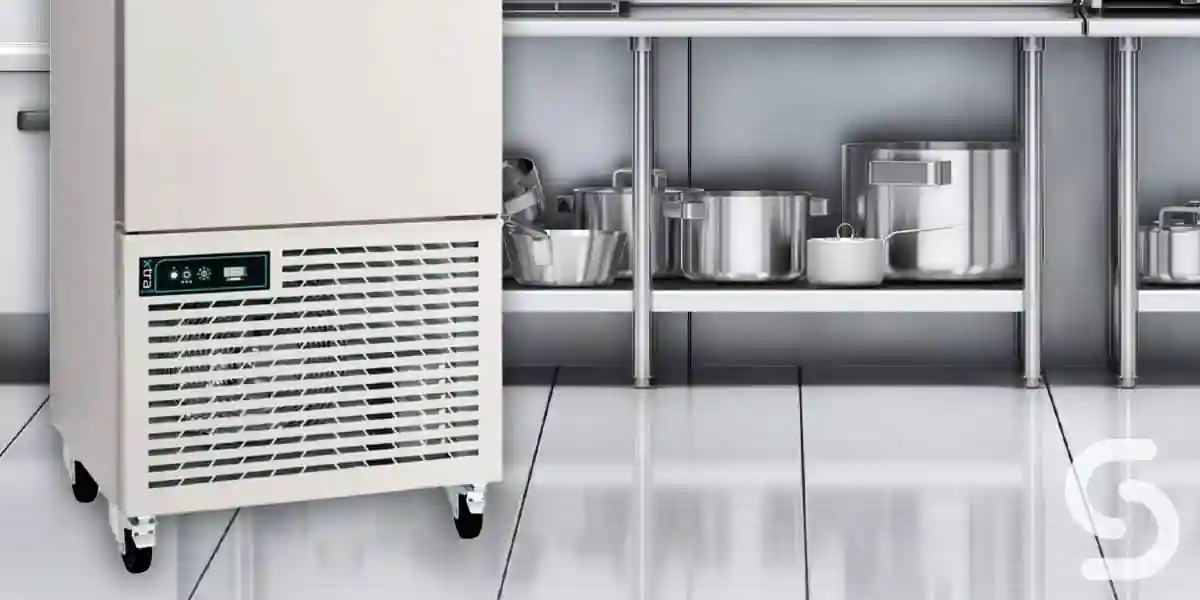What is a Chef Hat Called?
An iconic symbol in the food world is the chef’s hat. This headpiece has become synonymous with cooking with its
An iconic symbol in the food world is the chef’s hat. This headpiece has become synonymous with cooking with its
Ensuring your venue stays legally compliant. If your catering or hospitality venue is situated in England or Wales, your signage
Available in a range of sizes, our brand new illuminated menu covers are all the rage. Our illuminated LED menu
Shop across our entire range of catering & hospitality products with up to 70% off until midnight Monday 1st December.
Maintaining the highest standards of food quality, taste, and safety is crucial in the dynamic world of hospitality and culinary arts. A key instrument in achieving these objectives is the blast chiller, a revolutionary device transforming the approach to food handling in restaurants, commercial kitchens, and the wider food industry. This article explores the essential role of blast chillers in enhancing food safety and maintaining the quality of dishes in restaurants, bars, pubs, hotels and professional kitchens.

Often mistaken for their counterparts, blast freezers and chillers are specialised refrigeration units that are designed to quickly reduce food items’ temperature. But how does a blast chiller work? Unlike traditional freezers that slowly freeze food, blast chillers and freezers operate much faster, they blast chilling or freezing food by blowing cold air. This rapid freezing process dramatically reduces the risk of bacterial growth and contamination by quickly moving a food product through the ‘danger zone’ temperatures where bacteria can multiply very quickly.
A blast chiller quickly cools hot or cooked food to a safe holding range of 0°C to 4.4°C, preventing bacterial growth and preserving its quality. On the other hand, a blast freezer freezes food rapidly, often to temperatures as low as -23.3°C to -40°C or lower.
Blast chillers and freezers aim to maintain the original food quality. Regular freezing can cause large ice crystals to form in the cells of fresh ingredients like vegetables and meats, damaging their structure and affecting texture, taste, and nutritional value. Blast freezing, however, creates smaller ice crystals that are less harmful to cell walls, preserving the food’s texture, flavour, and nutritional content.
The hospitality industry widely embraces blast chillers for their versatility. Chefs like to use these chillers to quickly chill food, ensuring freshness, taste and nutritional value are maintained for later consumption. This is particularly beneficial for items such as cakes or delicate desserts that require precise texture and appearance.
Food safety is a top priority in food handling, and blast chillers are crucial. By rapidly lowering the temperature of cooked food, they help slow down bacterial growth. Rapid chilling moves food quickly through the temperature ‘danger zone’ (4.4°C to 60°C), significantly lowering the risk of foodborne illnesses. This makes them a vital tool in commercial kitchens that handle large volumes of food.
Blast chillers also positively impact food storage and convenience. This method can store food chilled longer while retaining freshness and quality. This reduces food waste and is convenient for restaurants to prepare large amounts of food in advance. Also, when reheated, these foods taste as fresh as when first cooked.
The nutritional integrity of food is closely linked to its storage and preparation methods. Blast chillers are vital in preserving the nutritional value of ingredients post-cooking. By preventing nutrient degradation at a cellular level, these chillers help maintain the food’s original quality and nutritional content.
Blast freezers and chillers are adept at handling a broad spectrum of foods, from vegetables and meats to baked items. Their capability extends beyond rapid cooling to uniform cooling, ensuring consistent core temperature reduction in all food items. This constant cooling is critical for maintaining diverse foods’ texture, taste, and quality.
When using blast chillers in a kitchen, it’s essential to ensure that your chefs and kitchen staff wear appropriate chef’s clothing. Chefs coats & jackets, trousers, shoes and aprons made from durable and heat-resistant materials can help protect them from the extreme temperatures and potential splatters associated with blast chilling.
Chefswear safeguards the kitchen staff and contributes to a professional and well-organised kitchen environment. Chefs and their teams must be comfortable and protected when working with blast chillers to ensure the safe and efficient handling of hot food items as they are rapidly cooled down to safe temperatures, preserving their quality and freshness.
They are crucial for ensuring food safety, enhancing quality, and offering convenience. From preserving the freshness of ingredients to maintaining the nutritional value and original quality of cooked dishes, blast chillers provide numerous essential advantages in modern culinary practices. As the hospitality industry evolves, the importance of such innovative technologies in maintaining high food safety and quality standards throughout the year is undeniable.
You can read more about the importance of proper food preparation on kitchen efficiency.



A Company Registered in England & Wales Company Registration Number: GB05069286 VAT Registration Number: GB867112521 Smart Hospitality Supplies is a trading division of The Smart Marketing & Media Group Limited
